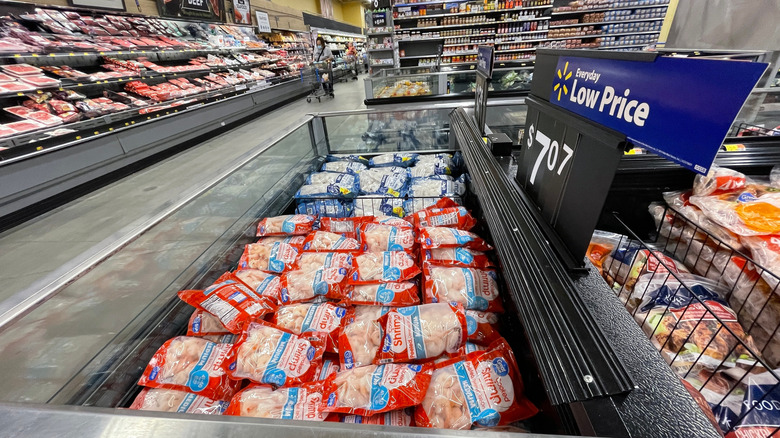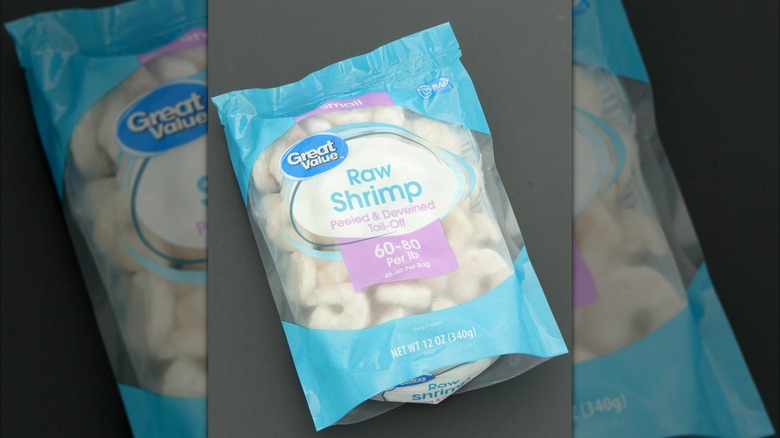Walmart's Great Value Shrimp Could Be Radioactive. Here's What To Know
The U.S. Food and Drug Administration is warning the public not to consume, serve, or sell certain shrimp products vended by Walmart under its Great Value brand, as the products could be contaminated with a radioactive substance. The alert was issued on August 19, 2025, after the FDA received Cesium-137 (Cs-137) contamination reports from U.S. Customs & Border Protection relating to shipments of shrimp. The affected products are processed by an Indonesian company called P.T. Bahari Makmur Sejati, which does business as BMS Foods.
Shipping containers and frozen shrimp products from the company were found to be contaminated with Cs-137 at four ports of entry located in California, Texas, Georgia, and Florida. The impacted shipments were denied entrance to the United States. While the FDA has not yet found that any contaminated products have entered the U.S. marketplace, Walmart did receive raw frozen shrimp from an implicated shipment.
The shipment itself did not alert for the contaminant at a port of entry, but it was imported after the first detection of contamination in other shipments. It is believed the products were either prepared, packed, or held in conditions that were unsanitary, leading to potential contamination. The FDA, therefore, has recommended that Walmart recall the products, and consumers are being advised to dispose of any affected goods they purchased and to not eat them. The affected products were sold through Walmart as Great Value brand frozen raw shrimp, lot codes 8005540-1, 8005538-1, and 8005539-1, with best by dates of 3/15/2027.
More about the Cs-137 contaminant and ongoing FDA efforts
The detected contaminant, Cs-137, is a manmade radioisotope of cesium that is created through nuclear reactions. Contamination levels detected in the shrimp shipments were below the FDA's Derived Intervention Level, which means the products themselves do not pose an acute hazard. However, the detected levels could pose a health hazard if the shrimp is consumed over an extended time period in combination with other radiation sources, like medical procedures and radiation already existing in the environment. An elevated cancer risk is the main potential health effect from such longer-term, ongoing low-dose exposure.
In addition to Walmart, the FDA is working with other retailers and distributors that similarly received implicated products, which came from shipments that didn't alert for the contaminant but were imported after the CBP first detected it. These businesses will also be urged to conduct recalls of the products. Efforts to track all implicated goods through the U.S. supply chain are ongoing, and the FDA will update its advisory as any additional information becomes available.
The FDA is also working with seafood regulatory authorities in Indonesia to trace the source of the contamination. P.T. Bahari Makmur Sejati has been added to the red list of a new import alert for chemical contamination, which will prevent further implicated products from entering the U.S. until the company has resolved the issues that led to this violation of the Federal Food, Drug, and Cosmetic Act.
Walmart has been subjected to many such big food recalls in the past, such as a 2024 recall that involved 8 tons of ground beef. Similar recalls have also impacted other major retailers. One of the biggest food recalls to ever hit Costco, for instance, also involved a shrimp product.


